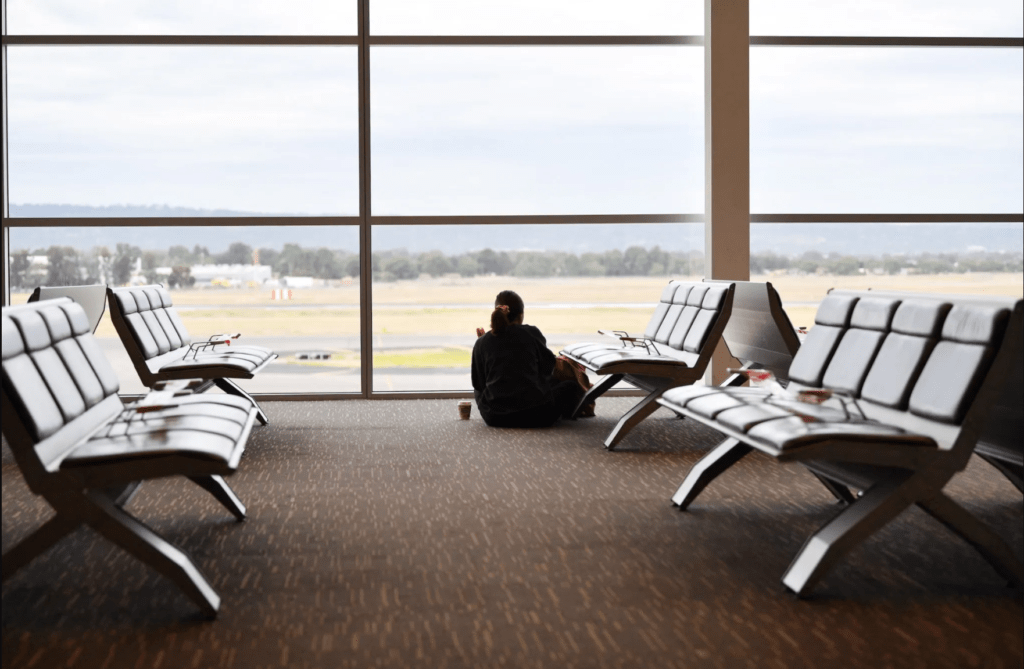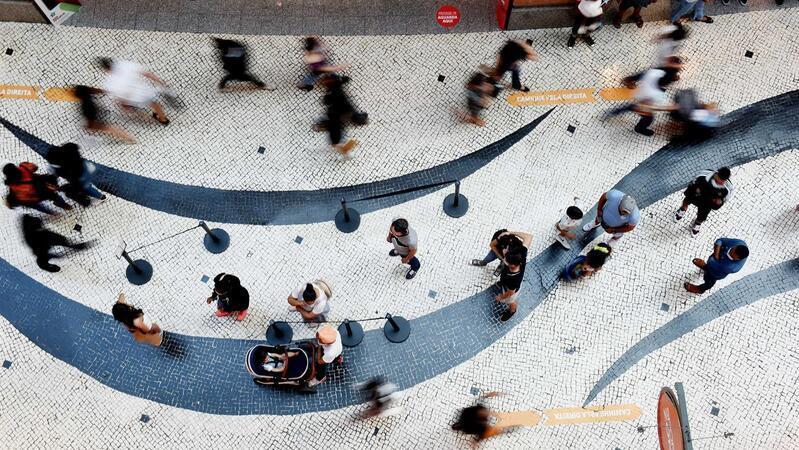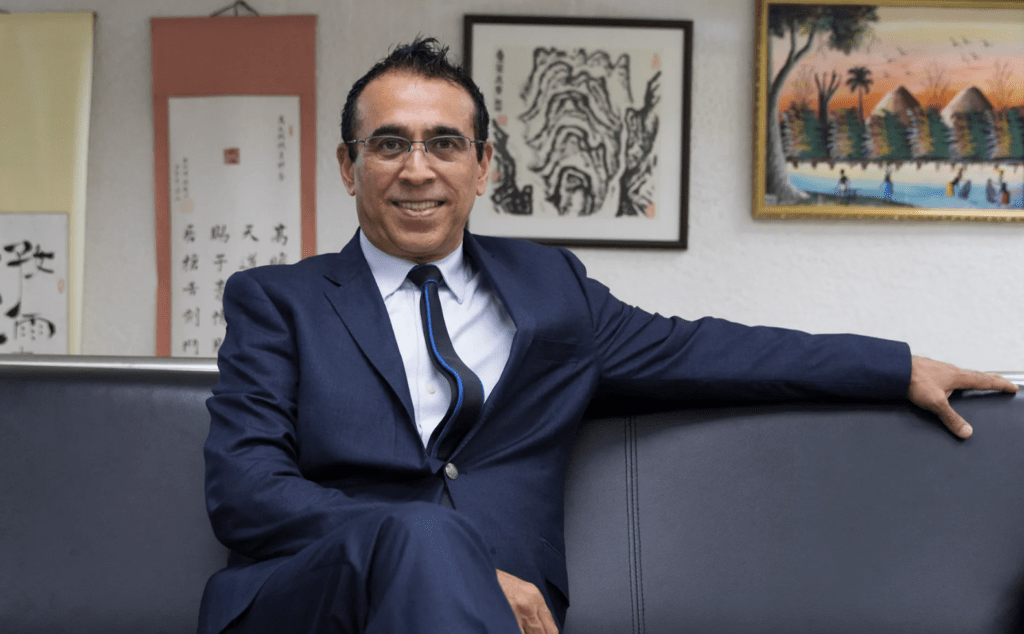Academics and community members do not believe that reopening of the borders and an eventual economic recovery will be enough to attract back Portuguese nationals. Economic conditions in Europe and the attitude of the Macau SAR authorities towards the importation of foreign professionals will be determinant for the recovery of the community
It is no secret that the impact of the pandemic prevention restrictions imposed over the past three years has led to a considerable reduction in the foreign population in the Macau SAR, with the Portuguese population being one of those affected.
With the city reopening to the outside world and tourist numbers increasing, the city is expected to recover economically. However, this does not mean that those who have left are thinking of returning, or that Portuguese professionals see the city again as a viable option for emigrating.

A recent report prepared by the Emigration Observatory, a research center of ISCTE – University Institute of Lisbon, showed that the number of Portuguese who emigrated to Macau in 2021 was the lowest since 2000.
According to the information gathered by this center, in 2021 only 18 Portuguese emigrated to Macau, while in 2020, 67 emigrated to the region – almost four times more.

Since 2000, the increase of Portuguese in Macau has been progressive, until 2013, when there was a decrease that lasted until 2017, growing again occasionally in 2018, and decreasing in 2019 and 2020. This decrease can mainly be attributed to the restrictions imposed by local authorities during the pandemic period, with a 21-day quarantine required for entries from abroad for most of the three years between 2020 and 2022.

With the removal of most of the entry restrictions and the now possible economic recovery of Macau, the big question now is whether the city will be able to attract professionals of Portuguese nationality, either those who have left or those who would arrive in Macau for the first time.
DIFFERENT CONTEXT ACCELERATES EXODUS
In 2016, Vanessa Amaro, an academic at Macau Polytechnic University, produced a doctoral thesis for the University of Macau that profiled the Portuguese community in the Macau SAR and sought to establish a pattern of behavior of those who immigrated from Portugal.
The thesis, entitled ‘Identity and sociocultural status issues in the Portuguese community in post-colonial Macau’, divided the sample between those who arrived before 1999 and those who came on the wave of a new migratory flow, mainly since 2005.
Recently, the academic decided to re-establish contact with some of the interviewees, inserting new people into the work, realizing that even before the pandemic many of the interviewees would have already left the city.
“What the participants in my study say is that the restrictions imposed in the last three years or so have made more visible and explicit situations that have caused them concern,” she tells PLATAFORMA.

These include “restrictions on personal and professional freedoms such as difficulty of movement; limitations on performing duties in an ethical and deontological manner; feeling of always being watched (more cameras everywhere); fears of legislation and regulations that leave the Portuguese unprotected.”
Also read: Macau among the most benefited with the reopening of China
There is also a perception in the community that “Macau is no longer home” or that the Portuguese are no longer as needed in several common roles for professionals who came from the country, such as lawyers, teachers, architects, engineers or journalists. Vong Hin Fai, the new president of the Macau Lawyers Association, recently revealed that about 60 have returned to Portugal or gone to work elsewhere since the pandemic began, reducing the number of registered lawyers in Macau to just over 440.
Amaro also points out that in recent years a large number of technical staff who came in the 1990s to support the Portuguese administration have reached retirement age.

“Many of these people had no plans to return to Portugal after retirement, due to the absence of major family and friendship ties there. But as the context of Macau has changed profoundly, more retirees are deciding to leave than to stay, and they can already count on a support network there that they used to have in Macau.”
LAW OF ATTRACTION
Based on her data analysis, the former journalist and professor points out that the end of restrictions may pave the way for Portuguese who have never resided here to come to Macau, and that a small part of those who have left may return if their personal and financial situation in Portugal does not stabilize.
“Still, there are a number of internal factors that may make Macau a less attractive choice for the Portuguese,” the researcher indicates to PLATAFORMA.
These factors include job opportunities in areas that used to employ Portuguese, replacement of the Portuguese by local labor, from within China or from other countries; high cost of living; poor image of Macau among the Portuguese who left; political decisions with a strong impact on local life; and the perception that freedoms can be limited at any time.
Amélia António, a lawyer and president of Casa de Portugal, is also not optimistic about the attractiveness of the Macau SAR for Portuguese in the future. “The opening of the borders is an indispensable mechanism, because in recent years people who were not residents could not enter. But this does not solve the basic problem that is the interest that the city may arouse in Portuguese people to come and work here,” she tells PLATAFORMA.

The lawyer notes that the arrival of Portuguese to work in the public administration “is out of the question because of the language,” while the private sector will be guided by the criteria that it feels are best seen by the current administration.
“This will depend on the policy that is followed regarding Macau being or not being a platform, a multicultural place with an international aspect, etc. All things that are said, but in practice have been pushed aside and we don’t know how they will be implemented,” he says.
Read also: Several groups arrive on 1st day of return of tours to Macau
“If these statements that are made about Macau are sincere and that is what is intended, it would be possible for gaming operators, who employ more people, to have interests in Portuguese cadres again.”
Amélia António stresses that Portugal has young and qualified staff who would be an asset to the city, but that, at the same time, there is a lot of pressure in Macau to employ only local staff.
“We know that there are many specialties and areas where there is not enough manpower. However, the political weight of the guidelines is going to determine a lot of the private sector’s behavior,” he says.

The president of the Casa de Portugal indicates that the difficult economic situation in Portugal during the last decade led many Portuguese to risk emigrating to the Macau SAR.
Also read: Travellers travelling from Macau to Portugal are exempted from covid-19 examination
“Today they have less support bases, […] housing is difficult, the bureaucratic part of documentation is time consuming and a bit complicated sometimes. None of this creates the conditions or is appealing for people to think about coming to Macau as an alternative way of life,” he warns.
This scenario could eventually change depending on the economic conditions in Europe resulting from the war and the impact they have from a professional or economic point of view. Currently, the Macao SAR still has advantages over Portugal in several economic indicators, with the average salary in Macao being around 52,668 euros per year, and the average in Portugal being around 19,300 euros, the tenth lowest in the European Union.

The European area has also seen galloping inflation as a result of rising energy prices and the economic impact of the war in Ukraine.
On average, the inflation rate in 2022 was 8.4 percent in the euro zone and 9.2 percent in the European Union (EU), with Portugal recording a Consumer Price Index (CPI) of 7.8 percent.
At the same time, the inflation rate in Macau in 2022 was 1.04 percent, up 1.01 percentage points from 2021. However, the reasons to immigrate or emigrate – as the studies conducted by Vanessa Amaro show – often go beyond economic considerations. “I am not optimistic. I think that Macau will suffer the consequences of these three years, of the people who left and the image that was created, for a long time to come. All this will not be undone in a moment,” Amélia António emphasizes.
SKILLED LABOR
José Pereira Coutinho, a deputy for the Legislative Assembly of the Macau SAR with Portuguese nationality, tells PLATAFORMA that qualified Portuguese professionals will always have room in the territory’s public administration. “If we promote more, using the cooperation agreement between Portugal and the Macau SAR, I believe that more Portuguese professionals can come to Macau. With the re-establishment of normality of movement and of all aspects of Macau’s cultural and social life, I believe there will be possibilities [for cooperation],” he says.
Read also: Macau’s economy to grow between 20.5 and 44.1% in 2023
For Coutinho, possible opportunities to export Portuguese skilled labor will be one of the topics to be discussed at new meetings of the Portugal-Macao Joint Commission, interrupted by the pandemic.
The 6th Portugal-MSAR Joint Commission, co-chaired by the Minister of Foreign Affairs and the Chief Executive of the MSAR, was held in Portugal in May 2019.
In a recent interview with Lusa, Coutinho had indicated that he had doubts about whether job opportunities would continue to exist in the territory for Portuguese nationals, as they did in the past. The deputy pointed out that the qualified Portuguese cadres who left the city were not replaced by others coming from Portugal, but by local cadres or from the interior of China. In comments to PLATAFORMA, the deputy now considers that the possibility of the authorities hiring bilingual talent from Macau or the mainland is not so relevant in certain specialized areas.

“In certain areas that require deeper technical knowledge, such as artificial intelligence, computer science, medicine, or magistracy, nationality is not so important, but your area of specialty may apply,” he points out.
Also read: Consul-General of Portugal already in office in Macau
Last year, the Macau Legislative Assembly passed in generality the proposed law to attract qualified cadres through tax benefits and a special residence permit. The proposal defined three types of qualified cadres, in talents “of high quality, (…) endowed with excellent skills or technical competence, with internationally recognized merit or relevant contributions in a particular area,” “highly qualified” and “advanced level professionals.”
The plan is part of efforts by the Macau government to advance the territory’s economic diversification in the coming years, through investment in industries that can absorb qualified personnel, such as the financial sector and the areas of scientific and technological research and development.



